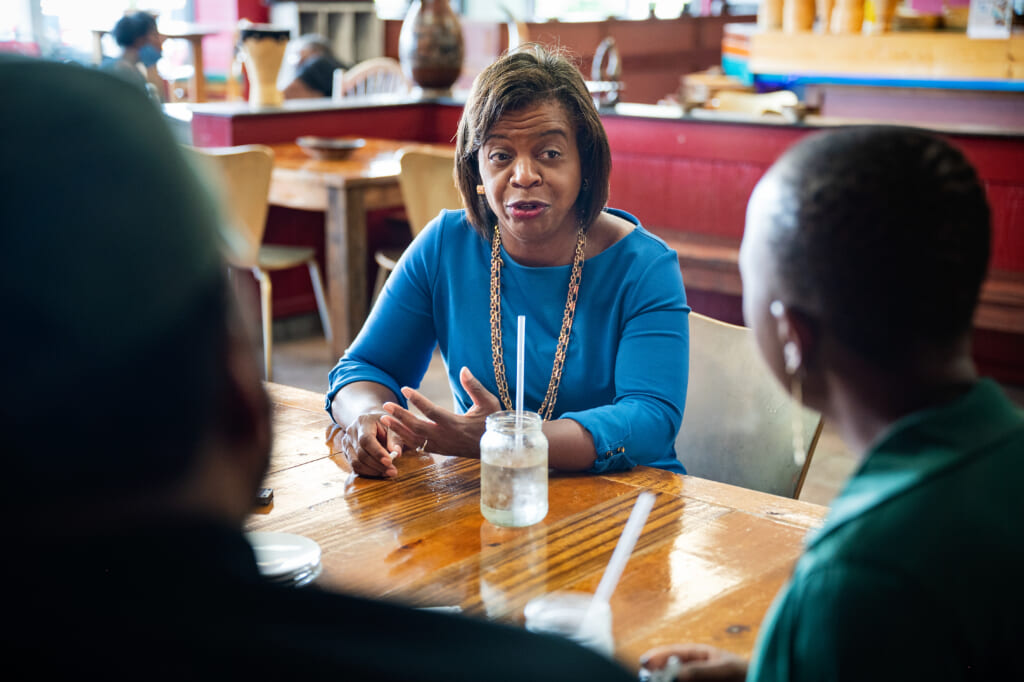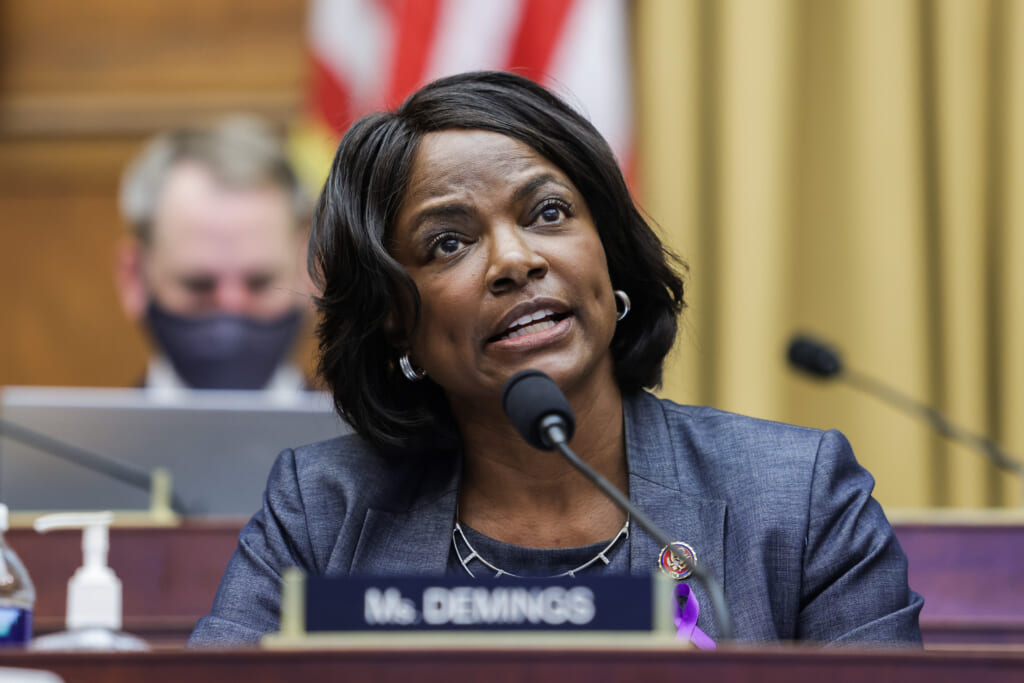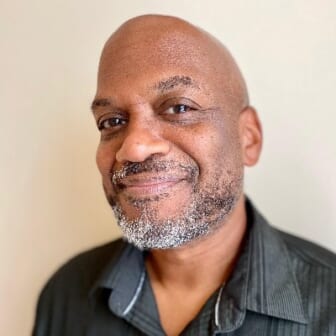‘The stakes are so high’: Austin Davis and a new generation of Black leadership are running against a rising MAGA tide
OPINION: “The people closest to the pain should be the closest to power,” says Davis, who is hoping to become the first Black lieutenant governor of Pennsylvania.

Editor’s note: The following article is an op-ed, and the views expressed are the author’s own. Read more opinions on theGrio.
In this crucial midterm election season, democracy is on the ballot, and that’s real. Issues such as reproductive justice, voting rights and many basic freedoms hang in the balance as Trump acolytes hope to take power at the state and federal level, gain control of the electoral process to steal elections and wipe away our civil rights.
In numerous statewide races around the country, a new generation of bold and dynamic Black leadership is running for office, and many are favored to win. Black turnout will be crucial. Running against MAGA ideologues and election deniers, insurrectionists and outright white nationalists, these Black hopefuls are on the frontlines of the war for the future of America.
One of the youngest of these candidates is Austin Davis, 32, the Democratic nominee for lieutenant governor in Pennsylvania. In Pennsylvania—where candidates for governor and lieutenant governor run separately in the primary and the party nominees run together as a pair in the November general election—Davis won two-thirds of the vote and carried every county in the state. He joins Pennsylvania Attorney General Josh Shapiro, the Democratic gubernatorial nominee, on the November ballot. Polls suggest Austin Davis is poised to become the first Black lieutenant governor of the Keystone State.
A Black state representative whose district is in McKeesport in Allegheny County, Davis became one of only a few Black lawmakers to represent a majority-white district in Pennsylvania and the first in Western Pennsylvania outside of Pittsburgh.
Davis’ upbringing in a Black working-class family informed his decision to pursue public service and take it all the way to the state house in Harrisburg.
“My dad’s a bus driver in Pittsburgh and my mom’s a hairdresser. You know, my parents worked really hard to be sure my sister and I had every opportunity to succeed, and that wasn’t always easy, right? My family struggled with many of the same things that families are struggling with today,” Davis said on the campaign trail in West Philly in a one-on-one interview with theGrio. “And it really gave me a perspective that folks don’t necessarily want anything handed to them. They just want a fair shot. They want an economy that allows them to have a family-sustaining job and to get ahead and build the foundation for what can lead to their children living a better life than what they had before, and so that’s really kind of informed my background.”
The legislator’s experience with gun violence as a teen propelled him into politics. “No person should have to live in a community that has to deal with gun violence. I got my start in politics when I was 16 years old when somebody got shot on my block. I decided that I wanted to go to a city council meeting,” Davis said. “There were two things that I noticed when I was in that meeting: One, nobody looked like me in government. And two, nobody was talking about the issue of gun violence. Instead of waiting for somebody else, I started a violence-reduction program in my community when I was 16 years old.”
After graduating from the University of Pittsburgh, Austin Davis did not leave his community but stayed in the old industrial town that was devastated when the steel industry collapsed in the late 1970s, leaving white and Black people in poverty. Now, he is preparing the community for a new economy with new jobs such as the legalized medical marijuana industry.
And when an unarmed Antwon Rose II was killed by East Pittsburgh police in 2018, Davis was one of the leading legislators calling for police reform. Standing up and taking responsibility as a Black leader, he worked with Attorney General Shapiro to create a first-ever officer misconduct database in Pennsylvania.

Across the country, we see other Black candidates moving beyond the old expectations and confronting the GOP threat. A Black woman named Deidre DeJear is challenging Iowa Gov. Kim Reynolds, who supports an anti-abortion amendment to the state constitution. Stacey Abrams wants to become the next governor of Georgia—and the first Black female governor in U.S. history—and transform government in her state. And the Maryland gubernatorial race pits Wes Moore—an author and former CEO of an anti-poverty nonprofit—against Trump-backed GOP nominee Dan Cox, a candidate that current Republican Gov. Larry Hogan calls a “QAnon whack job” and will not support.
In Wisconsin, Lt. Gov. Mandela Barnes hopes to unseat a vulnerable U.S. Senator Ron Johnson, a conspiracy theorist who played a role in Trump’s Jan. 6 coup attempt. Gary Chambers is the Democratic nominee for the Senate from Louisiana, and Charles Booker wants to unseat Senator Rand Paul in Kentucky. And two Black women—former North Carolina Supreme Court Justice Cheri Beasley and Florida Congresswoman Val Demings—are fighting to make their way into the Senate as Raphael Warnock protects his Georgia Senate seat from Herschel Walker.

Austin Davis views his own candidacy through the prism of these national dynamics and believes we are living at a critical moment. “The stakes are so high for folks who are working class or who really rely on government to deliver results for them and be effective, and that’s why I think you’re seeing so many candidates of color get off the sidelines and get in the game and say, you know we need to make sure government is working for the people that it’s supposed to work for,” Davis told theGrio.
“And quite frankly, I think you’re seeing so many younger folks, because look, we’re going to have to—my generation is going to have to deal with the consequences of the decisions that are made for the next 40 years. That’s our future, right? And so we’re saying we’re we don’t want other people shaping what our future looks like. We want to shape that ourselves and create a commonwealth or a country that works for everyone. And I think that’s the message that you’re seeing with Mandela, with Val Demings and some of these other folks,” he added.
According to Davis, the contrast between Democrats and Republicans could not be clearer as America becomes an increasingly diverse country and some view this diversity as a threat rather than as a strength “We’re talking about creating a more inclusive society as Democrats. And you have white nationalists who are talking about [how] they want to create a more white society and traffic in white supremacy. The reality is, I think that’s the contrast, right?”
Perhaps the contrast is no greater than in Pennsylvania, where the Shapiro-Davis ticket—a Jewish man and a Black man who, as Davis notes, are “reflective of the communities we seek to serve and that our party represents”—is running against the Trump-blessed Republican candidate and state Senator Doug Mastriano. The racist, antisemitic and Christian nationalist Mastriano believes Trump won the 2020 election and wants to steal the 2024 election for the former president.
Mastriano’s brand is so toxic that, as Pennsylvania State Senator Vincent Hughes said over the weekend at a Davis event, the Republicans are running ads for Carrie DelRosso, the GOP lieutenant governor candidate instead.
Ultimately, what distinguishes the new generation of Black political leaders such as Austin Davis is a focus on marginalized communities.

“The people closest to the pain should be the closest to power,” is Austin’s motto, which is profound. “Oftentimes when you look at people in high government offices, governors, senators, you know, members of Congress, they’re very traditionally very wealthy because of the system that’s set up, and it requires a lot of money to get there,” he said.
“I can say I’m an average person. I pay a student loan bill every month, right, and my parents are not leaving me with a trust fund that’s going to help spur my political career. I’m the only person in my family and extended family that’s ever run for office, right? So, I didn’t come from a political family, and I think that gives me a perspective more so what average people are going through on a day-to-day,” he said.
“And I think our government would be better served if more normal working-class folks had a seat at the table. And so that’s what I strive to bring to every room that I walked into as an elected official.”

David A. Love is a journalist and commentator who writes investigative stories and op-eds on a variety of issues, including politics, social justice, human rights, race, criminal justice and inequality. Love is also an instructor at the Rutgers School of Communication and Information, where he trains students in a social justice journalism lab. In addition to his journalism career, Love has worked as an advocate and leader in the nonprofit sector, served as a legislative aide, and as a law clerk to two federal judges. He holds a B.A. in East Asian Studies from Harvard University and a J.D. from the University of Pennsylvania Law School. He also completed the Joint Programme in International Human Rights Law at the University of Oxford. His portfolio website is davidalove.com.
TheGrio is FREE on your TV via Apple TV, Amazon Fire, Roku, and Android TV. Please download theGrio mobile apps today!








